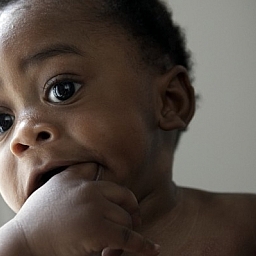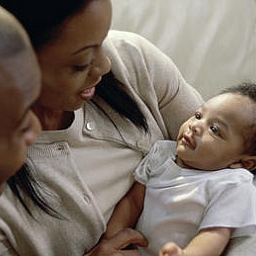Tagged Questions

Oghosa Abu
Yes, it's very normal
Sorry about this mom,
It may likely be your breastfeeding position. Please, type "WHO recommended breastfeeding positions" on youtube.
If this continues after implementing the teachings in the youtube videos, please see a doctor
It may likely be your breastfeeding position. Please, type "WHO recommended breastfeeding positions" on youtube.
If this continues after implementing the teachings in the youtube videos, please see a doctor
Oka ori: If you are not from Nigeria, you may be lost from the title alone. The typical Naija Mum knows what I am talking about, especially if you are from the South-Western part of the country, specifically the Yoruba tribe. The other tribes have their own names for the same condition.
The Grannies and some mums believe that there is a “hole” or “space” which is “breathing” or pulsating in the head of the new baby which is abnormal. That this soft space is not right and should not be there. Any baby that has this “abnormal space or hole” is diagnosed with “Oka”.
The “soft hole or space” often erroneously believed to be an abnormality is A NORMAL PART of the baby’s head. It is called ANTERIOR FONTANELLE (AF). Every baby has it.
It is there to allow the small spaces (sutures) between the different bones of the skull to accommodate the baby’s brain growth. So it is not “OKA” or any other thing….It is a normal part of the baby’s head.
The Grannies and some mums believe that there is a “hole” or “space” which is “breathing” or pulsating in the head of the new baby which is abnormal. That this soft space is not right and should not be there. Any baby that has this “abnormal space or hole” is diagnosed with “Oka”.
The “soft hole or space” often erroneously believed to be an abnormality is A NORMAL PART of the baby’s head. It is called ANTERIOR FONTANELLE (AF). Every baby has it.
It is there to allow the small spaces (sutures) between the different bones of the skull to accommodate the baby’s brain growth. So it is not “OKA” or any other thing….It is a normal part of the baby’s head.
Choice of formula is dependent on your ability to afford it and your baby's acceptability. There are so many available in the market. ATP does not endorse any specific brand of formula.
Greenish stools suggests inadequate feeding or starvation. Kindly continue to breast feed exclusively.. Make sure that the breast is emptied before switching to the next during feeding

Dr Aina Johnson
Paediatrician
What do you mean by ear problem?
The doctor is in position to explain the result of the diagnosis to you and your wife. It's hard to speculate.
Good day ma'am, Kindly take your baby to see a doctor preferably a Paediatrician first for thorough evaluation and treatment
Your baby is probably having colic, it should resolve on its own without any treatment.
It usually starts a few weeks after birth and often improves by age 3 months. By ages 4 to 5 months, the majority of babies with colic have improved.
You may however give Infacol for relief, but note that it does not work for every baby.
It usually starts a few weeks after birth and often improves by age 3 months. By ages 4 to 5 months, the majority of babies with colic have improved.
You may however give Infacol for relief, but note that it does not work for every baby.
Good day ma'am, Kindly take your baby to see a doctor preferably a Paediatrician first for thorough evaluation and treatment
Cough and catarrh are viral infections which usually run their course with or without medication. Babies with cough and catarrh. Exclusive breastfeeding and keeping baby warm. Avoidance of smoke and people with cough and catarrh are what to do.No need for medications. If child should develop breathing difficulties kindly take to see a Paediatrician
There's really nothing to worry about as long as it just some form of scare
If your baby is exclusively breastfed, he/she may not pass stools for days or even up to 2 weeks and it is not something to worry about as long as the baby is well, not vomiting and not having swollen or hard tummy.
Do not give water or anything. Baby will definitely poo. Exclusively breastfed babies rarely get constipated as breast milk is 80% water. Keep breastfeeding exclusively.
Do not give water or anything. Baby will definitely poo. Exclusively breastfed babies rarely get constipated as breast milk is 80% water. Keep breastfeeding exclusively.
Here is the truth, There are many reasons why your baby may not want to accept being breastfed. If you notice that your baby won't feed on one breast, Please seek advice from a doctor or a Lactation Consultant. Sometimes, it may be a result of reflux and links feeding with pain or her mouth is painful, perhaps because she has an infection such as thrush, or a cold sore.









